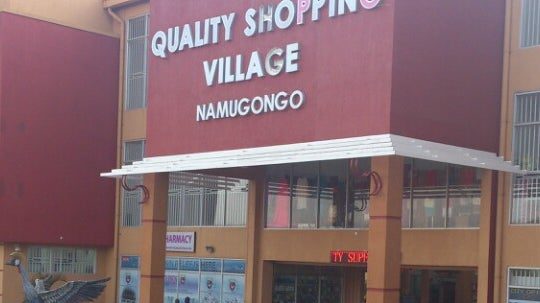
Over the last two years, Uganda’s capital city, Kampala is experiencing a transformation of its metropolitan which is reshaping the landscape and culture of the contemporary business practices around the city. What is happening in Kampala today relates to the US in the 1950s, when middle and working class American families moved to sprawling suburbs to the detriment of older cities.
A rapidly growing dependence on the car helped reshape life in American cities and suburbs after World War II. Growing traffic problems and rapid suburbanization forced authorities to implement transport projects that would encourage development out of the towns. Instead, the developments encouraged people and businesses to relocate out of the city. Suburban housing developments spread across the landscape on a scale never before imagined, at a distance from the city never before acceptable. Park Forest, Illinois, one of the largest privately built communities in the country, opened in 1948, more than 30 miles from the jobs and services of downtown Chicago.
In Kampala, areas that have been previously known as residential have fast grown into commercial towns. The Government was in early 2020 forced to declare a series of measures to contain the spread of the Covid-19 pandemic in Uganda. Among the measures pronounced was decongesting the Central Business District. Shopping arcades were closed and public transport restricted. While the measures affected several businesses in the CBD, the continued demand for goods and services by the residents on the outskirts encouraged businesses to open shop on people’s doorsteps.
In areas like Kiwatule, residents no longer have to travel 10 kms into the city centre to buy anything as the area has been built around the family with groceries, banks, hospitals, bars and supermarkets setting up shop in the sprawling malls and commercial structures at a walkable distance from homes.
The shift in business practices has also encouraged a shift in lifestyle. People are now settling in areas located at a distance never before imagined out of the previously known job and service centre of Kampala. Areas like Mukono, 18kms east of Kampala, Wakiso and Nansana, about 13kms away and Entebbe, Bulindo, Kira and Gayaza which were all remote for the average city dweller have sprawled into vibrant suburbs with the middle class families settling there.
But while the suburbanization of Kampala may have given chance to businesses to expand out of the city, multinational operators like the South African-based supermarket brands Shoprite, Game and Uchumi, which were majorly located in the CBD have been forced to fold and return home.
On the other hand, local supermarkets are growing even stronger. Quality Supermarket, which started in Old Kampala about 40 years ago to serve city dwellers that lived on the outskirt of the city, has grown into a series of big outlets located in different locations to serve their middle class clientele. The supermarket brand now boasts of an outlet in Kitende to serve residents of Entebbe Road districts like Kitende, Kajjansi, Bwebbajja, Najjanankumbi and surrounding areas. The residents previously needed to brave hours of traffic into the city center to make shopping.
Quality Supermarket also runs an outlet in Naalya, another upscale residential area linking places like Namugongo, Kira, Ntinda, Kyaliwajjala, Kireka, all known areas occupied by Kampala’s middle aged working class.
What seems clear is that the trend of suburbanization in Kampala is indication that businesses will remain open in and around Kampala if they can compete and take their services to the doorsteps of the suburb dwellers.